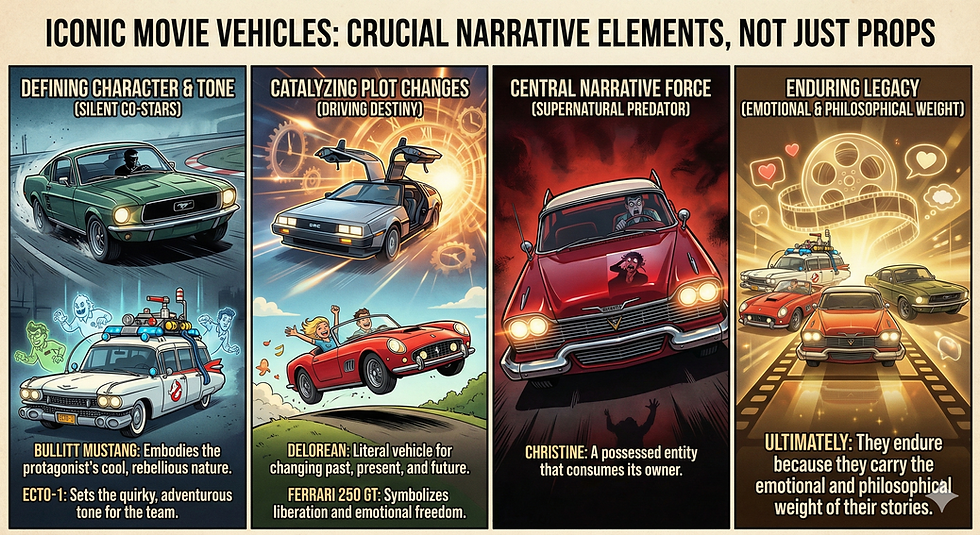Funny Ha Ha...
- FilmProfessor

- Aug 25, 2023
- 3 min read
Updated: Sep 6, 2025
I started hosting TikTok Live streams where I ask the audience to comment with their favorite films, one genre at a time. The engagement has been pretty good with over 1000 move submissions per session.

I entered the movies into my LetterBoxd lists which can be viewed here.
Funny Ha Ha: Exploring Comedy Films and Their Commentary on Society
Comedy films have long served as a lens to reflect and critique society, blending laughter with sharp social commentary across decades. From the golden age of Hollywood to the digital era, these movies have evolved, offering insights into cultural shifts and human behavior. Let’s dive into this genre’s history, starting with its early classics, exploring iconic films like Dr. Strangelove, Office Space, Tommy Boy, and There’s Something About Mary, and concluding with how internet culture and social media are reshaping humor today.
🎪 The Dawn of Comedy: It Happened One Night and Screwball Legacy
The 1934 film It Happened One Night, directed by Frank Capra, marked a milestone in early cinema with its witty banter and romantic escapades between Clark Gable and Claudette Colbert. As a pioneer of the screwball comedy genre, it broke from traditional romance by infusing humor with social satire, poking fun at class differences during the Great Depression. Its success, including a rare sweep of the major Oscar categories, cemented screwball comedy’s place in Hollywood, influencing a wave of fast-paced, irreverent films like Bringing Up Baby and His Girl Friday. This legacy of blending humor with societal critique continues to inspire modern comedies.
🎪 Satire and Absurdity: Dr. Strangelove
Stanley Kubrick’s Dr. Strangelove or: How I Learned to Stop Worrying and Love the Bomb (1964) took comedy into darker territory. Many filmgoers don't understand how it is considered comedic. Released during the Cold War, this satirical masterpiece mocked nuclear brinkmanship and military absurdity through its eccentric characters, including the titular mad scientist and a rogue general. Its biting humor exposed the irrationality of global conflict, resonating with a society gripped by fear. The film’s influence endures, proving comedy can tackle serious issues with a laugh, paving the way for politically charged humor in later decades.
🎪 Workplace Woes: Office Space, Tommy Boy, and There’s Something About Mary
The late 20th century brought a mix of workplace satire and outrageous humor. Office Space (1999), directed by Mike Judge, hilariously dissected corporate monotony and the tech boom’s dehumanizing effects, striking a chord with a generation facing cubicle life. Meanwhile, Tommy Boy (1995) delivered slapstick gold with Chris Farley and David Spade, offering a lighthearted take on underdog perseverance amid economic uncertainty. There’s Something About Mary (1998) pushed boundaries with its crude yet endearing humor, reflecting a cultural shift toward more risqué comedy in the ‘90s. Together, these films commented on work, identity, and relationships, blending laughter with relatable societal observations.
🎪 The Evolution of Comedy and the Digital Age
Comedy has transformed significantly over time, adapting to new platforms and audiences. The rise of internet culture and social media, especially since the early 2000s, has revolutionized how we laugh. Memes, viral videos, and platforms like TikTok have democratized humor, allowing anyone to contribute to the global comedy conversation. This shift has birthed a fast-paced, self-referential style, often mocking social media itself, think influencer parodies or cancel culture jabs. However, it also raises questions about humor’s boundaries, as online backlash can swiftly redefine what’s acceptable. As of September 6, 2025, this pervasive digital influence continues to shape comedy, making it more immediate yet increasingly complex, reflecting a society both connected and divided by laughter.
In conclusion, comedy films like It Happened One Night to There’s Something About Mary have mirrored societal shifts with humor, from Depression-era class struggles to modern digital dilemmas. As internet culture and social media redefine our laughs, the genre remains a vital tool for commentary, adapting to keep us laughing at ourselves in an ever-changing world.




Comments